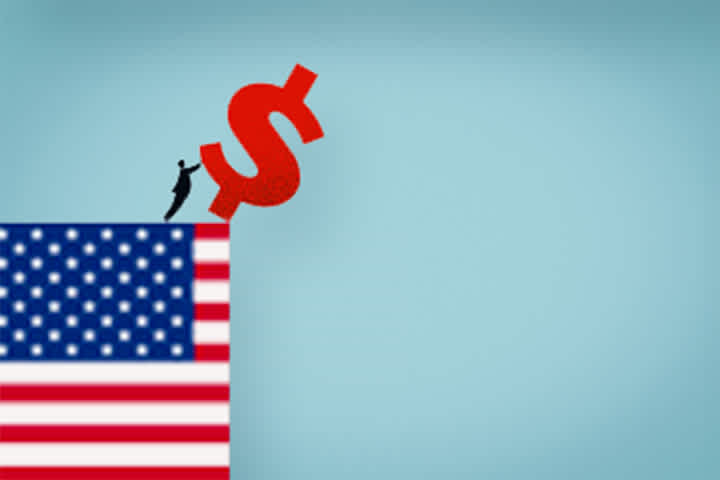Investing in football shares: what's the score?
Keytrade Bank
keytradebank.be
June 22, 2024
4 minutes to read
You may remember that Club Brugge hit the headlines with its IPO back in February 2021. A month later, the West Flanders club was back in the headlines again – this time because their IPO had been put on ice at the last minute. This was how news of the first listing of a Belgian soccer club bit the dust.
That said, listed clubs haven't been headline news in other countries for a long time now. Tottenham was the very first in 1983, but has since disappeared from the exchanges. Today, you'll find other well-known clubs on the list, including Manchester United, Arsenal, Celtic, Ajax, Borussia Dortmund, Olympique Lyonnais, Juventus, AS Roma, Lazio, Sporting CP, FC Porto, Fenerbahçe, Galatasaray and more. Surprisingly, little old Denmark has the most listed clubs in Europe, with five premier league teams.
On the whole, listed football clubs appear to be a European phenomenon. The further away from home you go, the less likely it is that you will be able to trade club shares. Still, there are some exceptions, such as Bali United FC in Indonesia or Corporacion Club Social y Deportivo Colo-Colo in Chile.
Why invest in football clubs?
Measured by the number of fans, soccer is the biggest sport in the world, followed by cricket (!) and (ice) hockey. Soccer is also number one in terms of media revenue, stadium visits and turnover. Quite apart from the sporting aspect, soccer would appear a worthy field for investment. It is, after all, a "service sector" that holds the interest of half the world’s population. Something that prompts excitement among billions of people could (or should?) excite a whole host of investors.
Your reasons for investing in one or more clubs will vary. Are you an Ajax or a Juventus fan, for example? If so, as a supporter you could buy some shares as a kind of "supporter's donation" or "fan ticket". You become a (very minor) co-owner of the club, and your capital may help your team to invest further. You won't really care very much whether the price rises or falls. You are doing it mainly because of support and your affection for the club, not to get rich. If you plan to invest in one or more football clubs, things will of course be different, because in this case you'll be expecting to potentially make a return on your money. Or perhaps you're betting that some wealthy businessman (or woman) will take the club off the stock market at a hefty premium.
How do football shares perform?
Shares in football clubs often bring high risk, low return and loss of money. Is this actually true? The quick answer is yes, historically speaking.
The STOXX Europe Football index can help shed some light on this. Between December 1991 and August 2020, this index tracked a representative basket of around twenty football shares (in the end, the index was shut down).
The index started at 100 points on 31 December 1991 and ended on 27 August 2020 – at 116.99 points. In short, if you invested for 29 years in a diversified basket of football shares, you would have achieved a total yield of just under 17%, excluding dividends. Peanuts, in other words.
If you had invested for the same period in the Euro Stoxx 50 (a basket with the 50 largest European shares in terms of market value), you would have enjoyed a return of 233% (excluding dividends).
Over the same period, the S&P500 delivered 737% (excluding dividends), the Shanghai Composite 1,043% (excluding dividends) and the Nasdaq 100 as much as 1,883% (excluding dividends).
So if you did invest in diversified football shares over the last few decades, you could have saved yourself the trouble. And if you were picking individual stocks, you needed an eagle eye.
If you bought shares during the Borussia Dortmund IPO, then today (January 2021) you are looking at a loss of around 50%, for Juventus around 70% and for Olympique Lyonnais/Sporting Lisbon/AS Roma around 85%. There are almost no positive outliers, the exceptions being Besiktas (+170% since the IPO) and Trabzonspor (+140%), although you would have been taking on a major currency risk.
What drives the prices of football shares?
In addition to the traditional factors that affect all investments (demand and supply, economic growth, interest rate policy, inflation, consumer confidence, market sentiment, etc.), there are a number of specific issues to consider:
- New contracts with well-known brands may be an indication that the club will receive more money, which will change its financial situation.
- Game results. If a team has a particularly good season, the share price may rise (prize money and qualification for international competitions).
- Qualifying for competitions with big prize money.
- Excitement about a potential new goal-scoring machine can help boost investor sentiment.
- Controversial incidents involving players or managers can cause share prices to fall.
- Price movements may be subject to stronger influence by investors who are investing for emotional rather than financial reasons.
To sum up: In historical terms, football shares are an extremely risky investment with relatively low potential returns.


